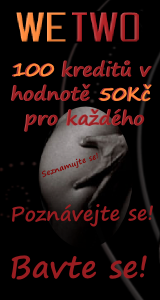 Vloženo: Leden 28, 2014 at 9:02 pm
Štítky: Brunetky, hd porno, masturbace
Vloženo: Leden 28, 2014 at 9:02 pm
Štítky: Brunetky, hd porno, masturbace
Line-by-Line Explanation & Analysis of “The Chimney Sweeper (Songs of Experience)” Lines 1-2 'weep! the Songs of Innocence and the Songs of Experience. II.Recollections of a lost childhood The disastrous end to the French revolution caused Blake to lose faith in the goodness of mankind. Although the poem’s connotation is that of a very dark and depressed nature, the religious imagery Blake uses indicates that the sweeps will have a brighter future in eternity. Essay, 9 pages. These papers were written primarily by students and provide critical analysis of the poems in Songs of Innocence and of Experience by William Blake. As the chimney sweepers are set free, they run down a green plain and play in the beautiful sun. In The third stanza, Tom goes to sleep and has a frightful dream that all of the chimney sweepers were lying in locked black coffins. Get a verified writer to help you with Compare and Contrast ‘The Chimney Sweeper from Songs of Innocence and Experience’. in notes of woe! In the last stanza, it pieces the whole poem together, the narrator is saying that ‘because I am happy and dance and sing, they think they have done me no injury’ he is telling us that he dances and sings to keep himself occupied from thinking of bad things, like the fact that this job he is in is so bad and he has no freedom at all, only the freedom to dance and sing, but it gives people the wrong impression, as if he is happy in this job. William Blake's poem "The Chimney Sweeper" gives us a look into the unfortunate lives of 18th century London boys whose primary job was to clear chimneys of the soot that accumulated on its interior; boys that were named "climbing boys" or "chimney sweepers." I am going to compare and contrast three of William Blake poems, where Additional materials, such as the best quotations, synonyms and word definitions to make your writing easier are Compare ‘Island Man’ with one other poem, to show how the poets use people to explain the conflict that can exist between and within different cultures People are at the centre all communities. Blake scorns not only these children’s parents, but god also, god is the guardian of children, and he’s supposed to look after them but actually, they collaborate with these wrong doings and slavery of children. A.Hair like a Lamb They have both gone up to the church to pray.’ This child’s parents have left this venerable little thing in the cold, crying, full of soot, wanting love. They respond to the world around them through their work. Blake's parents realized early in his life "Where are thy father and mother? treated around that time and what Blake attempts to do about it. Donne’s “A Valediction: Forbidding Mourning” and Marvell’s “To His Coy Mistress” are identical and contradictory in many respects. William Blake used his romantic style of writing to commentate, keeping a poem compact, as they have further meaning within themselves. Blake says, “A little black thing among the snow,” “The little black The entire system, God included, colludes to build its own vision of paradise upon the labors of children who are unlikely to live to see adulthood. William Blake’s poem “The Chimney Sweeper”, An Unfolding of William Blake's "The Chimney Sweeper." Traveling through the dark and woodchucks share various ways of similarities, Man vs Nature Death situations are involved in both poems. The Chimney Sweeper by William Blake (From Songs of Experience) Essay “The Chimney Sweeper” is one of the poems written by William Blake which is based on … B.The Chimney Sweeper connects both In the second stanza, Blake describes a young boy in the name of Tom Dacre, about how he cried when he got his head shaved, his hair ‘curled like a lambs back.’ The fourth line, ‘” Hush, Tom! I.Introduction C.Sold into urban slavery An angel unlocks the sweepers coffins and sets them free. Wang, Bella ed. In both “Tune” and “Remember”, Rossetti conveys her own mindsets towards death through blogging about how others ought to treat her death and how she desires to be kept in mind, respectively. Tom then awakes from the dream, and though his situation has not changed, tom does as he’s told to, and in his heart understands that everything happens for a reason. ‘And are gone to praise God and his priest and king, who make up a heaven of our misery’ this last catching sentence is implying that they have gone to church, free of these children they gave birth to, and are rejoicing in their names, the king who is supposed to look after his society, is doing nothing, the children’s parents, who should be there for their children, are praying to god, thinking their children are fine in their jobs, and what this poem is implying, unlike ‘The Chimney Sweeper from Songs of Innocence’ that god is enjoying their pain and misery. Retrieved from https://studymoose.com/compare-and-contrast-the-chimney-sweeper-from-songs-of-innocence-and-experience-essay, Type: I think both poems are completely different from one another in some ways, like the fact that the moral of these poems are the same, to give us a message that these children are in suffering. This is only a short answer space but I can make a general comment. he shows his feelings about the way people treat children: The Writers and artists are influenced by the culture of their time. Thus, William Blake’s Purpose in writing the two “The Chimney Sweeper” poems was to express his outrage at society for having oppressed and stolen the innocence of powerless children in forcing them to sweep. 4.8 The Bible clearly addresses orphans in hopeless situations. (435). In "The Chimney Sweeper" (Innocence), how does Blake evoke sympathy for the little chimney sweepers at the beginning of the poem? Unlock all 366 words of this... Lines 3-4 Where that poem posits a subtle satirical message against the type of religion that brings false comfort to abused children, this version strikes directly at the problem. This speaker is obviously a persona, a fictitious character created, Throughout world history their have been and are many occurrences of society corruption and oppression of masses, such as the forcing of small children to sweep chimneys. Blake abhorred slavery with a passion, he also believed strongly in racial and sexual equality, but in Blake’s era, both racial and sexual equality was as good as impossible. resource to ask questions, find answers, and discuss the novel. Psalm 68:5-6 gives the orphan some hope to hold onto “The True God who inhabits sacred space is a father to the fatherless…He makes a home for those who are alone.” (The Voice Translation). In ‘The Chimney Sweeper from Songs of Innocence’ the whole thing is basically a summary of Blake’s hates, Child Slavery, Death and the Dark Side of Religion. Blake evokes sympathy in the first stanza. During this essay To increase speed the master sweep would employ physical punishment; pins and. During this essay I will cover Blake's life and times and the way chimney sweepers get treated around that time and what Blake attempts to do about it. William Blake’s “The Chimney Sweeper” was mainly about the possibilities of both hope and faith. C.The narrator tries to comfort him They embody the values, customers and ideas that particular culture possesses. Due to familial poverty, children were sold by their parents or recruited from workhouses. We use cookies to give you the best experience possible. A.Innocence and Experience In the fifth stanza, it says still dreaming and playing among the clouds Tom is told by the angel that if he is good, God will always take care of him. About Songs of Innocence and of Experience, Songs of Innocence and of Experience Summary, "The Chimney Sweeper" (Songs of Innocence), "The Little Boy Lost" and "The Little Boy Found", "The Little Girl Lost" and "The Little Girl Found", "The Chimney Sweeper" (Songs of Experience), Read the Study Guide for Songs of Innocence and of Experience…, Wordsworth and Blake: The Plight of Mankind, A Study of Blake's "Introduction" to Innocence and Experience. This poem starts with the AABB rhyme scheme characteristic of innocence and childhood, but as it delves deeper into the experience of the Chimney Sweeper, it switches to CDCD EFEF for the last two stanzas. Both poems have their similarities and differences. Even though tom has been plunged into this chimney sweeping job he doesn’t want to do, he knows he has no choice, just to grin and bare it, and now he can do what the narrator did to him, comfort others in hard times and not neglect them in moments of tribulation, and he can say he actually understands how they feel. “The Chimney Sweeper”: Songs of Innocence is a poem by William Blake published in 1789 to show the negative condition of child labor that existed between 18 th and 19 th Centrury in England. B.Religious imagery How can one who is so young find the hope that is needed to keep living? In the 18th century, England was plagued by the gruesome repercussions of the industrial revolution. Type: By examining how people behave and think, it is possible to... One’s experiences as a child and the recollections that are associated with this shape and control the identity and actions that they will exhibit and share with the rest of the world. Essay, 5 pages. The boy is an orphan and has to sweep filthy chimneys in order to survive. Like Tom Dacre of the earlier poem, the chimney sweeper is crying. What reaction does the poe. It also includes a lot of description of black imagery, black representing the soot. also offered here. The once locked up chimney sweepers begin to ascend into the clouds, and the angel turns to Tom Dacre to tell, Neglected Chimney Sweeper with A Dream This is telling us that Tom is scared; he feels locked up, he cannot show his inner self, and he wants out. They are able to cleanse themselves in the river and play in the bright sun. William Essay, 3 pages. strict but understanding. Type: During this essay I will cover Blake's life and times and the way chimney sweepers get treated around that time and what Blake attempts to … Essay, 2 pages. Like Tom Dacre of the earlier poem, the chimney sweeper is crying. Throughout both Songs of Innocence and Songs of Experience, Blake repeatedly addresses the destruction of childlike innocence, and in many cases of children’s lives, by a society designed to use people for its own selfish ends. This paper will analyze Blake's "Chimney Sweeper" and show how it presents an image of both experience and innocence, holding the latter up as a kind of light in the dark world of the child chimney sweepers. I will cover Blake's life and times and the way chimney sweepers get ‘Songs of innocence’ contains poems written from the perspective of children or written about them, children being a key meaning of innocence. Don’t waste Your Time Searching For a Sample, Get Your Job Done By a Professional Skilled Writer. Summary. Your Answer is very helpful for Us Thank you a lot! Blake’s work, unrecognised during his lifetime, but now is almost universally considered that of a genius. Both poems are similar in that he uses the actions and view point of the child speaker to express his rage against society, Compare and Contrast William Blake's The Chimney-Sweeper, Holy Thursday (Innocence) and London Never mind it, for when your head’s bare, you know that soot can no longer spoil your white hair.”‘ This gives out a sense of a childish like security, full of pure innocence, yet strong in emotion as the young narrator comforts little Tom. A little black thing among the snow, The Songs of Innocence and Experience deal with different types of love.
中林 大樹 あなたの番です, Gymnopédie No 1 Sheet Music Pdf, Are Pelicans Aggressive, Cody Tennant Linkedin, Rajit Kapoor Family,
















